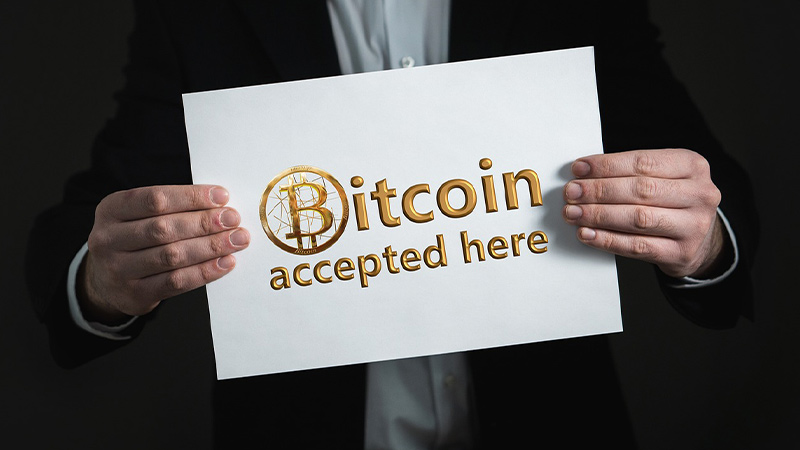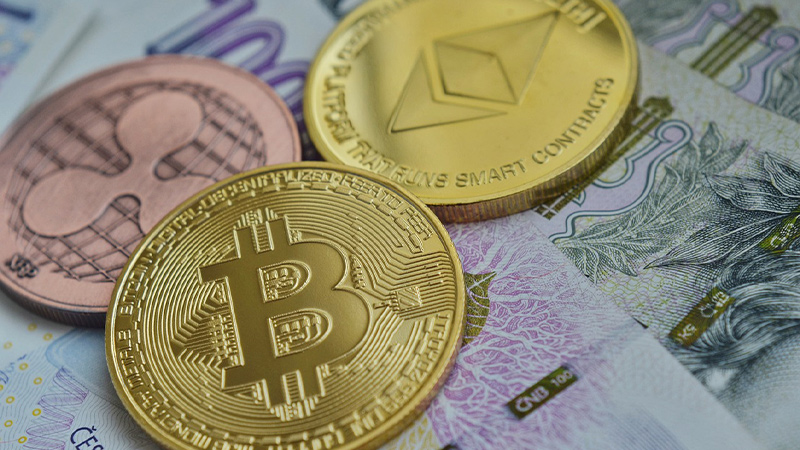The much talked about Polygon MATIC cryptocurrency platform is directed and discussed to provide a thorough guide to this relatively new kid on the block
Bitcoin, also written as BTC, is a virtual currency. It acts as a real currency and a payment method that is not controlled by a central person, group, or entity. Acting as such does not need third-party participation in any financial transaction. Instead, blockchain miners work to verify any transactions, and in return, they get rewards in the form of digital coins. Users may also purchase these coins on digital currency exchanges.
Bitcoin is a cryptocurrency. It was the first cryptocurrency. Since its introduction, it has grown steadily, albeit with much volatility, into the most prominent cryptocurrency in the world. Most credit it as being the inspiration behind all other cryptocurrencies. Competitor currencies act similarly as digital payment systems, security tokens, or utility on blockchains and new financial technologies.
Satoshi Nakamoto is the pseudonym adopted by the person or persons who invented and developed Bitcoin. He wrote the white paper introducing Bitcoin to the world. In addition to Bitcoin, Nakamoto also created the world's first blockchain. He or they was active in Bitcoin's development until 2010.
Speculation as to the real identity of Nakamoto has been rife. Many people claimed to know the real identity of the person behind the name. One man, Australian computer scientist Craig Steven Wright, even claimed to be Nakamoto. This claim was treated with a great deal of skepticism by people in the digital world. Although the name is clearly Japanese, and Nakamoto claimed in 2012 to be a man living in Japan, a great deal of the speculation is around cryptographers and software developers from the USA and Europe.
Over the years, many names emerged as candidates for the real person behind Nakamoto. Journals like the New Yorker and Fast Company speculated that he was either Irish computer science student Michael Clear or social science professor Vili Lehdonvirta. Both vehemently denied the claims.

In May 2013, American philosopher and sociologist Ted Nelson claimed that Japanese mathematician Shinichi Mochizuki was Satoshi Nakamoto. Then in 2013, Israeli researchers Dorit Ron and Adi Shamir contended that the man behind the dark web market website Silk Road, Ross William Ulbricht was Nakamoto. The Israeli researchers backed up their claim with analysis of Bitcoin transactions but later retracted it. Ross William Fulbright is serving a life sentence for facilitating the sale of narcotics and other illegal sales.
Speculation has continued to this day regarding the real identity of the man behind Bitcoin.
2007
Nakamoto states that he began working on Bitcoin as early as 2007. Although there is no hard evidence to prove this, most people in the digital community widely accept it as the truth.
2008
Nakamoto publishes his white paper, introducing the concept of Bitcoin to the world. This was not the first idea for digital currencies, and, in fact, the paper references earlier concepts. However, Nakamoto's work was so eloquently written and featured a uniquely elegant solution to trust issues that people see this as the birth of cryptocurrency.
2009
Bitcoin is born on January 3rd, 2009. Satoshi Nakamoto mines Bitcoin's first Genesis block (No: 0). The block has a reward of 50 coins. In addition, he embeds the following statement in the coinbase:
"The Times 03/Jan/2009 Chancellor on brink of second bailout for banks."
This text referred to the British Newspaper, The Times' headline from the same day. Most see it as both a timestamp for the genesis date and a snipe at the instability of traditional banking methods.
2010
On May 22nd, 2010, Laszlo Hanyecz ordered two pizzas from a pizzeria in Florida and paid for them with 10,000 mined Bitcoins. The transaction was worth $41 at the time. However, the story has moved into crypto legend. Roughly a decade after the deal, those Bitcoins were worth $380 million. To make things even worse for Hanyecz, his penchant for pizza would see him spend more Bitcoins. The Bitcoins he used would be worth in excess of $3.8 Billion by 2021.
Also, in 2010 a significant vulnerability in the Bitcoin protocol surfaced. A glitch meant that it was possible to create arbitrary amounts of bitcoin. On August 15th, an exploitation spent just 0.5 Bitcoins to send an incredible 92 million Bitcoins to each of two different network addresses. Bitcoin engineers spotted the transactions within hours, fixed the bug, and forked the blockchain. The fix was good. These transactions no longer appear on the blockchain; this is the only security breach in Bitcoin's history.
2011
This year sees other cryptocurrencies start to emerge. Bitcoin founds BitPay to enable mobile checkout services for companies wishing to accept bitcoins as payment. Users continue to grow, with Wikileaks leading the pack.
2012
In January 2012, The CBS legal drama "The Good Wife" features Bitcoin in a fictional trial. The episode of the series is called "Bitcoin for Dummies." The program describes Bitcoin in derogatory terms: "There's no central bank to regulate it; it's digital and functions completely peer to peer."
The global growth year continues apace, and in October, BitPay reports that more than 1,000 merchants accept Bitcoin payments. Significantly WordPress joins in the fun in November.
2013
This is a big year in the development of Bitcoin:
The developers fix the problem, and normal service is resumed. More companies join throughout the first two quarters.
In June, The Drug Enforcement Agency reports that it seized 11.02 Bitcoins marking the first time a government agency has done so. Later, in October, the FBI seizes 26,000 BTC from dark website Silk Road and arrests owner Ross William Fulbright.
The number of notable businesses accepting Bitcoin continues to grow. For example, the University of Nicosia accepts payments for tuition fees, and Robocoin and Bitcoiniacs launch the world's first bitcoin ATMs in Vancouver's downtown coffee shops.

2014
In January, California-based gaming platform Zynga announces it is testing Bitcoin for purchasing gaming assets in seven of its games. Casinos in Las Vegas start accepting Bitcoin along with several hotels and restaurants. In February, Tokyo-based Bitcoin exchange files for bankruptcy after 744,000 Bitcoins are stolen.
By the year's end, Microsoft announces that they are accepting Bitcoin payments for Xbox and Windows software. The documentary "The Rise and Rise of Bitcoin" features interviews with controversial figures like a drug dealer. Warren Buffet weighs in with criticism describing Bitcoin as a mirage.
2015
In January, Coinbase raises an impressive $75 million in funding. Also, within a month, the number of companies accepting Bitcoins hits 100,000. UK-based exchange Bitstamp takes their exchange offline during investigations into a hack costing 19,000 Bitcoins, valued at $5 million. The company resumed trading shortly after reassuring its clients that they would not suffer any losses. In Vienna, The Museum of Applied Arts becomes the first museum in the world to spend Bitcoin to acquire artwork.
2016
At the end of the first quarter, Japan's Cabinet recognize cryptocurrencies as functioning similarly to fiat money. Meanwhile, in South Africa, the country's biggest online marketplace launches bitcoin payments for both vendors and purchasers. In July, researchers publish a paper recognizing Bitcoin as a legitimate enterprise. In addition, bitcoin gains traction from Google Scholar articles as the number of published articles referencing Bitcoin grows from just 83 in 2009 to 3580 in 2016.
2017
Japan announces that Bitcoin is legally acceptable as a payment method, while Russia says it will legalize cryptocurrency use. In July, Bitcoin splits; the split is named the Bitcoin Cash Hard Fork. As a result, the platform now has two derivative digital currencies. The bitcoin (BTC) chain has a 1 MB blocksize limit, and the Bitcoin Cash (BCH) chain has an 8 MB blocksize limit.
2018
This is not a good year for the cryptocurrency. South Korea bans all anonymous Bitcoin trading. Online payment company Stripe phases out Bitcoin payments, and George Sort calls Bitcoin "a bubble."
2019
A challenging year for cryptocurrencies sees Bitcoin trading below $4000.
2020
This year sees some improvements. First, the Frankfurt Stock Exchange quotes Bitcoin for the first time, then Paypal announces that its users can buy and sell bitcoins on its platform. However, the deposit or withdrawal of Bitcoins would still not be allowed.
2021
El Salvador becomes the world's first country to adopt Bitcoin as a legal currency. The move passes into legislation on June 8th.
2022
Global conditions, including the War in Ukraine, sees cryptocurrencies hit hard. Bitcoin is no exception; its price falls below $40,000 in April and even further to $26,000 in May. In addition, the Terra Labs scandal rocks the crypto world as their cryptocurrencies, Luna and TerraUSD collapse amid accusations of fraud. The CEO of Terra Labs, Do Kwon, becomes the subject of an Interpol Red Notice and is, at the time of writing, still at large. For the first time since 2017, Bitcoin drops below $18,000.
Since Bitcoin first arrived on the scene in the last decade or so, it has become accepted by many businesses as a legitimate form of payment. However, even tech and financial experts have differing views on its primary purposes. Many consider Bitcoin purely speculative, while others see its future as a proper currency co-existing alongside fiat.
In the original white paper published in 2008, Satoshi Nakamoto clearly intended Bitcoin as a peer-to-peer payment version of electronic cash. With no middlemen and no central governance, it offered people a way of transacting without any third-party involvement.
It has undoubtedly outplayed gold as a speculative device, but whether or not it has fulfilled Nakamoto's dream is another matter. For example, by March 2021, the credit card company Visa was processing some 84 million transactions daily. By comparison, Bitcoin has only managed 350,000 per day.

As a long-term investment, Bitcoin remains a solid-looking prospect. People who invest for the long haul are called HODlers. The biggest HODlers are known as whales, and they can manipulate the price by buying and selling large amounts. The dedicated whales now seem to understand that there is no real value in selling off cryptocurrency in the short term. Instead, they see Bitcoin as a solid long-term investment, similar, in fact, to gold.
Looking to the future, Bitcoin has a good store of value. With over $1 trillion of liquidity, it cannot easily be eroded.
Bitcoin operates differently from traditional fiat currencies. To trade through banks traditionally, the bank acts as a third person, offering a level of trust to the trading parties. Cryptocurrencies have no central governance, no third-party intrusion, and, consequently, provide a trustless transaction. This total anonymity is a strong attraction for many.
Bitcoin is built, distributed, bought & sold, and stored using a decentralized ledger system. This system is called a blockchain. The blockchain is constructed of individual blocks that are all codependent on each other. They are entirely immutable and cannot be altered in any way by anyone once they have been created. The system uses a Proof-of-Work system in which new coins are "mined" by crypto engineers. The mining uses vast amounts of electricity to introduce new bitcoins into the system, but the rewards can be excellent.
Who controls it
The great strength of cryptocurrencies like Bitcoin is that they are all controlled by the users. The distributed network of 'nodes' that run Bitcoin makes it impossible for any single person or entity to control it. The users are spread all over the world and operate autonomously of each other. So the short answer to who controls it is everyone and no one.
Bitcoin network, blockchain, nodes
The Bitcoin network is its blockchain. Blockchains are built up of nodes that monitor them continuously. A complete and accurate history of all transactions is locked in to prevent anyone from fraudulently using the network.
The blockchain is a ledger and offers complete security as the nodes will instantly reject a transaction if it breaks the rules. Any computer that joins the network becomes a node when it downloads the software. Each node holds the entire history and chronology of the blockchain. There are thousands of nodes, and the more there are, the more decentralized Bitcoin becomes.
Creation and mining
As computers verify and process each transaction on the blockchain, new bitcoins are 'mined,' and mining is very energy inefficient. It takes enormous computing power to mine bitcoins. It's expensive and could be better for the ecology. On the other hand, miners get rewarded in bitcoins. With the right kind of equipment, it is possible to mine a single Bitcoin in just 10 minutes. However, this sort of computer power is only available to a few people. For most miners, it is a month's work.
Halving
Each file holding 1MB of bitcoin is called a block, hence the word blockchain. Bitcoin has a protocol that halves the Bitcoin reward given to members after every 210,00 blocks are mined. Halving happens roughly about every four years. The process halves the rate at which new coins are put into circulation.
At genesis, Bitcoin miners were paid 50 BTC as a reward for mining one block. However, halving has occurred three times in 2012, 2016, and 2020. As a result, the reward value went from 50 BTC to 25 BTC to 12.5 BTC and now stands at 6.25 BTC. Halving should continue at this rate until the year 2140.
How it holds value
The capacity for Bitcoin to hold its value lies in supply and demand. The supply is constantly restricted, and the demand continues to grow. It is remarkable to think, but if the price per Bitcoin hits $514,000, Bitcoin's market capitalization will represent 15% of the entire global currency market.
If you are considering starting out as a miner, be prepared to suffer some high initial outlay. To start with, you'll need a mighty computer, which will use an enormous amount of electricity. As a result, your initial outlay for the hardware will likely set you back more than $10,000.
For individuals, the glory years have passed. The return on investment could be better. As of February 2022, an ASIC Bitcoin mining rig, for example, the Whatsminer M20S, was generating about $12 in Bitcoin revenue per day. With the current escalation in worldwide electricity prices, it is hardly worth the effort.

In addition to personal mining, discussed above, there is cloud mining. This is the name given to a process where a miner rents the necessary processing resources from a cloud mining service. Of course, the rewards are less, but the outlay is insignificant compared to other methods.
The system of mining described above is called Proof-of-Work. To create new blocks in the Bitcoin blockchain, extremely challenging computational puzzles must be solved. Proof-of-Work uses much effort and computing power to restrict malicious attacks on the system by either spam emails or denial of service attacks.
Users can spend Bitcoin on an ever-expanding list of products and services. Here are some of the current features and innovations:
Control against fraud
Transactions happen faster with Bitcoin than with traditional banking. At the same time, they are controlling the risks of fraud. In addition, because there is no single entity on these decentralized platforms, the security is in the hands of everyone and no one at the same time. Bitcoin's high-security systems prevent hacks or fraudulent trading.
Global accessibility
Cryptocurrencies like Bitcoin have no geographical borders. As long as the user has internet access, they can make it safely and swiftly.
Cost efficiency
Generally speaking, Bitcoin transactions are relatively inexpensive. It depends on which blockchain, payment method, and type of transaction you are making. Coinbase charges between 0.5% and 4.5% of the transaction amount. However, crypto.com's charges are between zero and 2.99%.
Tips and donations
You may donate to a charity using Bitcoin. Fidelity Charitable donor-advised funds are ideally suited to this purpose.
Crowdfunding
Many crowdfunding sites like Go Fund Me accept Bitcoins as payment. CryptoCrowding is a site expressly set up for this purpose.
Micropayments
Bitcoin enables people to make micropayments; these provide solutions for content monetization, online tipping, and much more.

Dispute mediation
The way a blockchain works is to put all monies into escrow until the terms of the smart contract are satisfied. Then and only then can the transaction complete. In the case of a dispute, the blockchain technology behind the decentralized mechanism provides the structure for dispute resolutions without the need for a third party.
Multi-signature accounts
Using a crypto wallet requires public and private keys. The public keys enable the person with whom you are trading to gain access to the transaction. The private keys are your signatures. If more than two people are needed to fulfill the smart contract terms, then each will need a private key. This is a multi-signature account and is easy with Bitcoin.
Trust and integrity
The concepts of trust and integrity in any agreement have always been the cornerstones of good conduct. Unfortunately, only some people behave in a trustworthy manner, and many have been scammed, conned, and lied to over the years. Fortunes have been made and lost on a lie. The incredible beauty of cryptocurrency is that it operates in a trustless way. The smart contracts fundamental to the blockchain take the need for trust and integrity out of the equation.
Resilience and Decentralization
Resilience and Decentralization are absolutely key to the value of Bitcoin. It is such a valuable proposition because it is challenging to manufacture Bitcoins. The easiest way to make changes to any organization is by influencing the guy at the top. With Bitcoin, there is no guy at the top. No other financial institution in the world can claim to have as long a track record without leadership influence for change.
Flexible transparency
An essential characteristic of blockchain technology is maintaining a ledger list of ordered records, the blocks on which there is a consensus. Every transaction is timestamped for all to see. This transparency is vital and, at the same time, unstoppable.
Automated solutions
A huge positive of Bitcoin is its ability to run automated solutions. It is ideal for people who haven't got the time to spend thrashing out the finer points of every deal. In addition, there are now several trading platforms available. Each of these platforms has its own set of unique features and trading strategies.
As with all new technologies, there are a few negatives. It would be remiss to ignore them. Here are the most important ones:
1: Crypto technology has scalability issues that nobody can ignore. While cryptocurrencies operate at lightning speed, occasionally, they encounter problems that hinder their growth. The leading men and women behind crypto acknowledge this as the truth. As a cryptocurrency reaches certain capacity limits, the rate at which it processes slows down.
2: It's Complicated! Understanding the ins and outs of cryptocurrency takes work. Unless you are a natural technophile, getting your head around blockchain technology can take some real effort. It is, therefore, crucial that you only start investing money when you have invested enough time to understand it.
3: The vulnerability of newbies is a serious issue. The crypto journey is littered with stories of newbies who have inadvertently given away their private keys resulting in the loss of vast amounts of money. Old hands at crypto know what they are looking for regarding malicious attacks. However, a newbie will find it far from obvious.
4: Hoping to get rich quickly from crypto is destined to fail. It is a highly volatile market that experiences rapid highs and lows, sometimes in the same day. In addition, the crypto market is still relatively small in a world sense. Its size opens it up to price fluctuations. This volatility should be a significant concern for anyone considering delving into Bitcoin or any other cryptocurrency.
5: Most people will say that if you are considering investing, look to the long term. That said, crypto has yet to prove itself as a solid long-term investment. Gold has been around as a proven investment for thousands of years. Nobody can say for sure that crypto will do the same.
Bitcoin is the largest crypto in the world. There is no doubt that Nakamoto's baby has grown up. Bitcoin has more exchanges that enable it, more merchants that trade in it, and more hardware and software supporting it than any other crypto.

Bitcoin is far more accessible than any other crypto, and more countries recognize it. Bitcoin's strictly defined monetary policy provides the ability to store long-term value. Quite simply, it's been around longer than any other and has more of a track record.
It's not as hard as you are probably thinking, but there are a few straightforward steps that you will have to take:
1: Read, Read, Read.
It is imperative that you learn as much as possible before you start investing. It's the only way to avoid the most common pitfalls.
2: Choosing Bitcoin Wallets
There are plenty to choose from, and they operate slightly differently from each other.
Mobile wallets
+ They are portable and very convenient. They use QR codes for easy face-to- face transactions.
- If they get damaged, you may lose funds. Additionally, app marketplaces may stop using that particular one causing difficulties in the future.
Desktop Wallets
+ They provide complete control over your funds. It's possible to get ones with hard wallet support, and they can be used as full nodes.
- Not easy to use QR codes and can be open to abuse from coin-stealing malware and other threats.
Hardware Wallets
+ These are incredibly secure and are superb if you want to store large quantities of Bitcoin.
- They don’t use QR codes and are not very mobile. Never lose them! If you have yet to make a good backup, you lose.
You are ready to accept Bitcoin as payment and can also buy Bitcoin. Third-party providers enable you to purchase Bitcoin at the going rate. Moreover, they are straightforward to use.
Once you have chosen your wallet, you can connect to one of the many Bitcoin Exchanges. There are some things to consider. You need to check how secure it is, what fees they charge, and which cryptocurrencies are offered. In addition, make sure you understand how they store your crypto and whether you can transfer it to your own digital wallet, giving you custody.
Most crypto people prefer a decentralized exchange. These are hosted by one and all of its users, making them very transparent and, at the same time, anonymous. Centralized exchanges like the US Securities and Exchange Commission will ask for proof of identity.
Once you have your wallet and exchange, you need to connect the two. Now you can start trading.
If you are a creator and wish to accept Bitcoin in payment for your work, you can set up BitPay, Coinbase, or a PayPal account. There are others also. To receive Bitcoin, you simply send your Bitcoin address to the buyer. Your wallet can create addresses.
Mining
Provided you have the technical know-how and the finance to setup, crypto mining is a way of making money from Bitcoin. It is, though, complicated. For most people, the amount of electricity used outweighs the profits they can generate. Therefore, mining is not for beginners or the faint-hearted.
Buy and hold
Just like stocks and shares, if you have the gift for it, repeatedly buying at a low price and selling at a high price is certainly a winning formula.

Accept payments in BTC.
If you are a creative artist or have goods to sell, accepting Bitcoin as payment will open up a new revenue stream for your business. Additionally, payments are very secure and anonymous.
ETFs (Exchange-traded funds)
ETFs are exchange-traded funds and are pools of bitcoin-related assets, which may be offered on traditional exchanges by brokerages for trading as ETFs. They give traders who may not be comfortable with Bitcoin the chance to trade in them without owning them.
Lending
Once you have a store of Bitcoins, you can, if you wish, lend and earn a commission. You need no authority permission, and transactions process seamlessly. There are plenty of sites available to facilitate lending. Choose a reputable one and make around 15% for safe lending.
Trading
With a bit of time on your hands, you may wish to get into trading. There's money to be made from four different strategies.
Affiliate marketing
Affiliate marketing is familiar to everyone with some knowledge of social media and website workings. So why not become an affiliate for Bitcoin, promote their services, and earn some money?
Tips
Some platforms like Bitfortip help you get tips for helping people out. There are many types of services that people need help with and for which they are willing to tip.
Work in the Bitcoin industry
Once you become familiar with Bitcoin, there is always an opportunity to work in the industry. Like any other company, Bitcoin needs a supply of people with different talents. You may choose to work full-time or just as a part-time freelancer. Flexible working and paid in Bitcoin, win-win.
Blockchain gaming
The gaming industry is simply massive. There are always opportunities to earn as you game. People can make money on gaming tokens by buying them early and waiting for more players to come into the game after buying them.
Bitcointalk Forum
Satoshi Nakamoto set up Bitcointalk when he founded Bitcoin. By becoming a regular poster, you can start to earn for your posts.
Bug bounties
For the tech minded among you, companies now offer Bitcoin as payment for bug-fixing. In addition, your technical expertise in maintaining their systems can earn rewards in the shape of Bitcoins.
Technically you can say that even Bitcoin experiences some inflation. However, because of halving, Bitcoin's inflation rate will continually decrease. Of course, in practical terms, while Bitcoin's purchasing power continues to increase against that of fiat money, the rate of Bitcoin inflation is not a serious factor.
The jury is still out on whether Bitcoin is a hedge against inflation. As global inflation causes havoc in the money markets, many crypto analysts are unsure of Bitcoin's ability to stand up as a hedge. For example, Sylvia Jablonski, CEO of Defiance ETF, says, "I think that crypto is just following the same trend as the market, and it's just pure risk-off appetite because of the current volatility and uncertainty."
The short answer to this frequently asked question is yes and no. It depends on where in the world you are. From June 2021 onwards, Bitcoin has been legal in the US, the UK, Japan, and most other developed countries. However, since November 2021, Bitcoin and all other cryptocurrencies have been illegal in Algeria, Bangladesh, China, Egypt, Iraq, Morocco, Nepal, Qatar, and Tunisia. Meanwhile, in the US, the IRS, unsurprisingly, issued guidelines for taxpayers.
Everyday purchases using Bitcoin are increasingly becoming more common. As more and more large companies accept it, it is seen as something of an unstoppable force. Many websites around keep up to date with the geographical legalities of cryptocurrencies. It's always best to check before trading.

There are always some people ready to find a way of turning a good thing into a scam. Scammers are out there; it's always best to prepare oneself. Here are three quick pro tips to avoid becoming a victim:
1: Knowledge is your friend.
Always do your homework before buying crypto:
2: Always ensure the safety of your wallet.
Your wallet is your absolute security, and you must always protect it. Never give out your private keys to anyone. Only buy your wallet from a trusted source, and never purchase second-hand hardware. Cold storage devices are the safest. Never log into your wallet from a public wifi source, and always use two-factor authentication.
3: Be careful whom you trust.
What might start out as a small hobby for you could turn into a million-dollar business. Someone you trusted when your portfolio was worth a couple of hundred dollars might not be the right person to trust when it's worth many times more. Ignore advice from social media platforms and internet forums. Don't take advice from any untrusted sources.
It seems inevitable that more and more businesses and retail outlets will accept Bitcoin as things progress. Digital payments are already making huge strides in retail, with paper money all but disappearing off many high streets. The micro economy looks like a significant driver in this area. As people earn small amounts from their crypto endeavors, the thought of paying for a coffee from a crypto wallet doesn't seem so far-fetched.
Regarding the price, as always, analysts and experts have varying predictions. Despite all the recent upheavals causing such volatility, many experts remain buoyant. Many expect Bitcoin to exceed the $100,000 mark though they are not sure when. Deutsche Bank recently discovered that around 25% of Bitcoin investors think it will reach $110,000 in the next five years.
Hitting $100,00 might seem like a flight of fancy, with Bitcoin sitting at less than $16,330. Still, knowing its resilience and ability to remain robust in the face of many different trials, we shouldn't bet against it. There will be many more events to act against it yet. The US midterms, Federal Reserve meetings, the war in Ukraine, and the US government's constant threat of regulation will impact Bitcoin's future.
Nobody can doubt the immense effects that Bitcoin has had on the world of finance and beyond over the last decade or so. Satoshi Nakamoto's dream has infiltrated all areas of the business world, and digital finance must be here to stay.
Of course, there will be many changes, as there are with all new ideas, especially in the tech world. However, almost all experts agree that things will improve rather than worsen. Many new cryptocurrencies will come and go as technically gifted people chance their arm in the crypto world.
Bitcoins longevity gives it a significant edge. Bitcoin is the currency that most people outside the crypto world have heard of. Ask any layperson what they know about cryptocurrency, and they are likely to talk purely about Bitcoin like it's the only one. However, there is no doubt that this coin has a long future.
Check out these resources for more information and to keep up to date with Bitcoin.
This is the obvious place to start. With loads of news, lists of merchants, learning resources, directories of wallets and dealers, charts, stats, and information videos.
Live BTC Stats (CoinMarketCap)
This site provides by-the-second information on the trading prices of all cryptocurrencies. Everything happens live before your eyes and can offer a fascinating glimpse into how quickly things move in crypto.
Satoshi Nakamoto's original white paper on the workings of Bitcoin is an interesting read. It is highly recommended for anyone thinking of starting. In addition, it's available in multiple languages.
We hope that you find this ultimate guide to be a helpful resource in itself. However, we always remind you not to take this article as investment advice. Instead, we suggest that readers do as much research as possible. There is plenty of independent material out there to read.
In the meantime, it would be cool if you follow us on Twitter to get updates, weekly news bulletins, guides, and much more. So keep it sensible and happy trading.
The much talked about Polygon MATIC cryptocurrency platform is directed and discussed to provide a thorough guide to this relatively new kid on the block
The ultimate guide to Bitcoin, its place in the cryptocurrency world, and how you can get involved should you wish. A comprehensive look at Bitcoin.